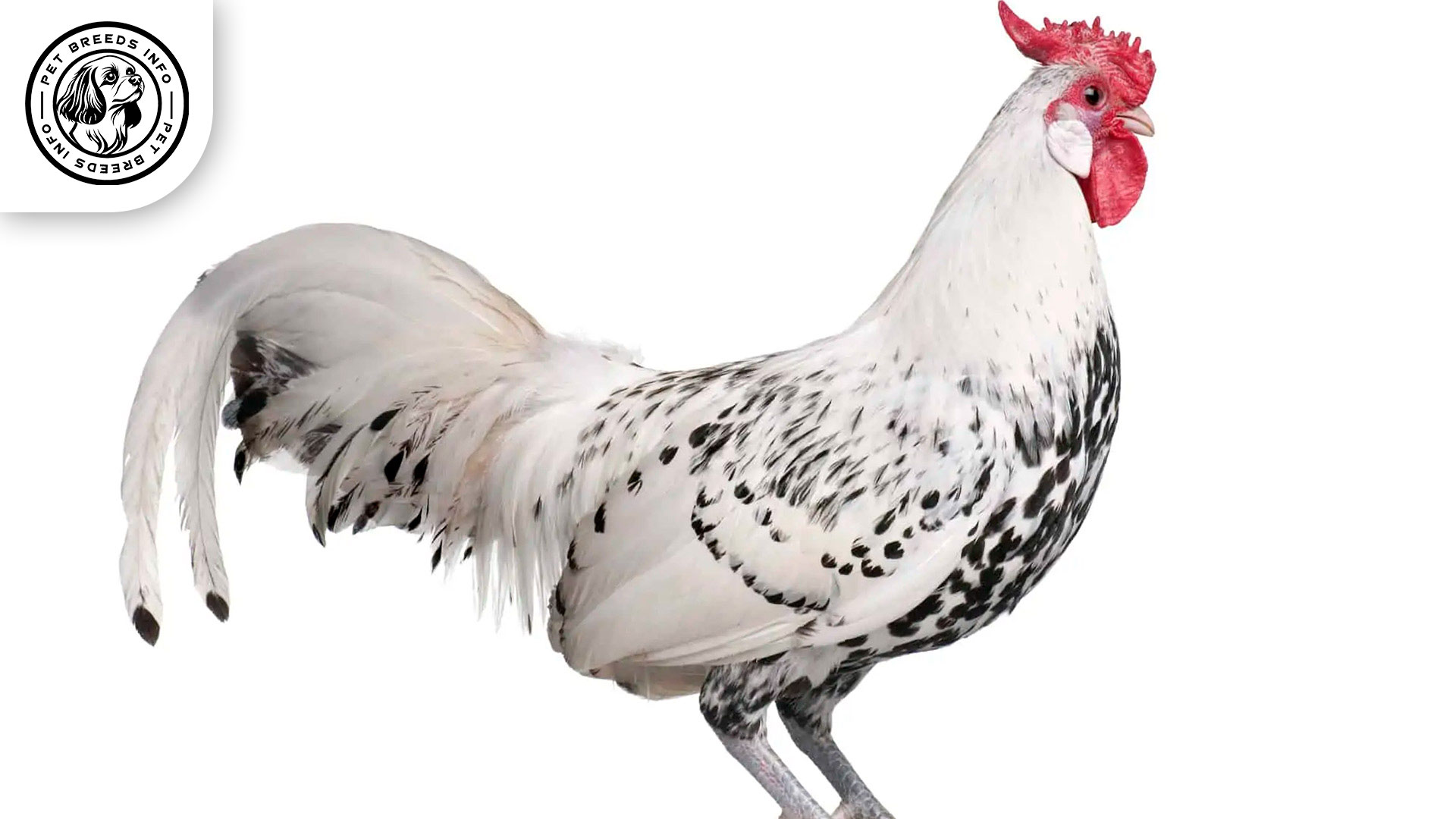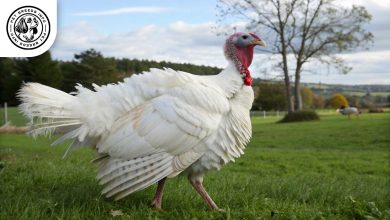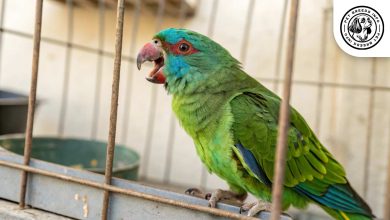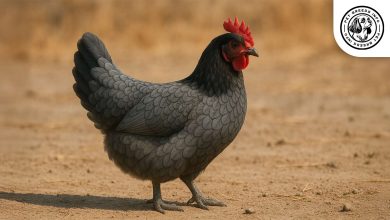Hamburg Chicken Breed: Personality, Lifespan, Food & Care
General Introduction of the Breed
The Hamburg Chicken, also known as the Hamburgh Chicken, is a distinctive and old breed of poultry that originated from the Netherlands and Germany. It has been bred for centuries and was introduced to England in the 18th century. This breed was initially developed for its excellent egg-laying capabilities and was highly prized in European farms.
Table of Contents
| Common Name: | Hamburg Chicken, Hamburgh Chicken |
| Scientific Name: | Not provided in the text |
| Origin: | Netherlands and Germany |
| Size: | Medium-sized (males around 5 lbs/2.3 kg, females around 4 lbs/1.8 kg) |
| Lifespan: | 5 to 8 years |
| Talking Ability: | Not applicable (this is for birds like parrots, not chickens) |
| Colors: | Silver-spangled, gold-spangled, silver-penciled, gold-penciled, black |
| Noise Level: | Not explicitly stated, but as an active breed, they are likely to make typical chicken noises. |
| Social Behavior: | Good with other chickens, can be a bit dominant in establishing pecking order. Not the most affectionate toward humans, can be flighty. |
Physical Characteristics
The Hamburg Chicken is a medium-sized bird, with males weighing around 5 pounds (2.3 kg) and females weighing approximately 4 pounds (1.8 kg). It has a slender, upright body with a small, well-proportioned head.
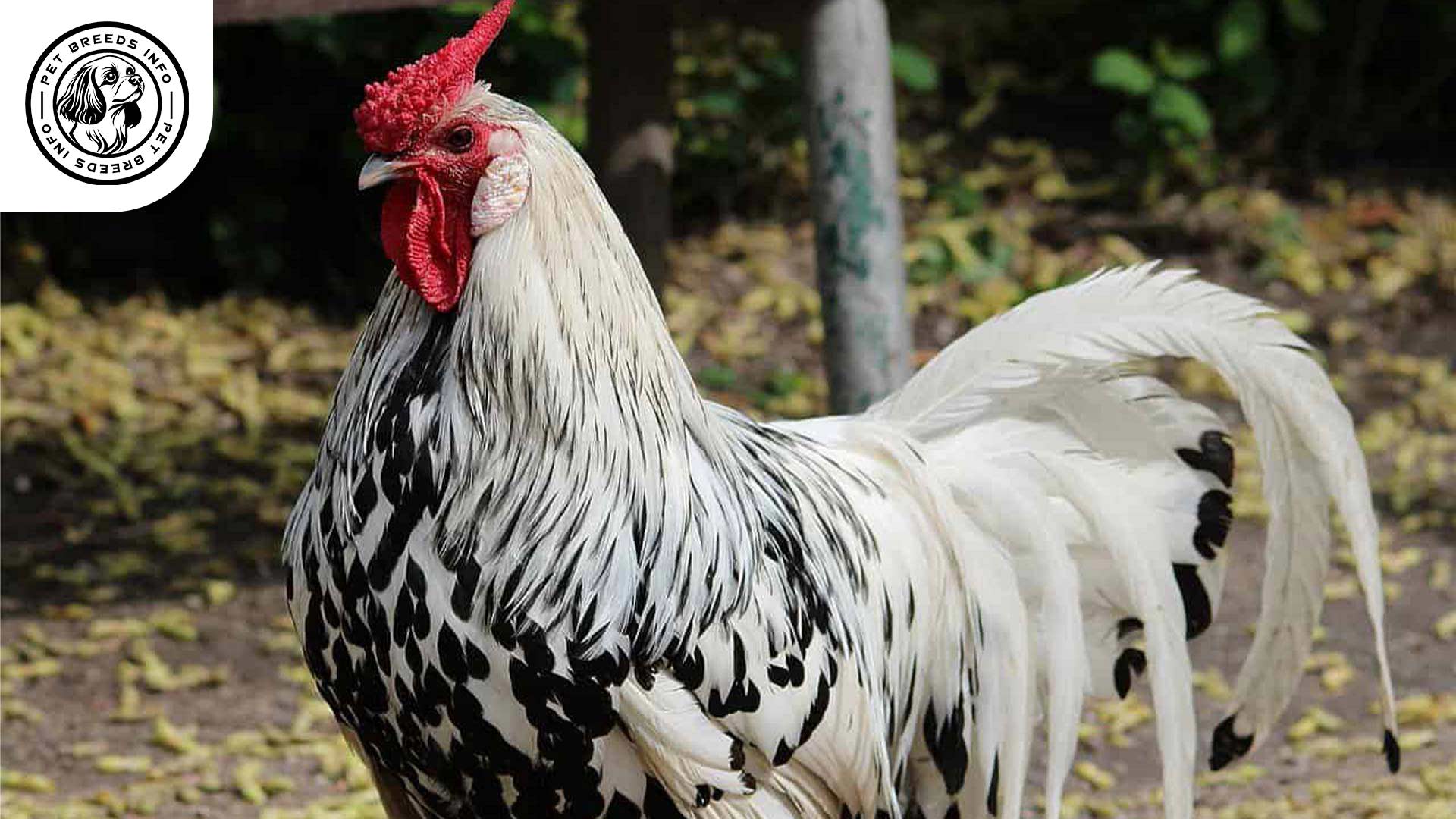
Its plumage is sleek and glossy, and it comes in various color variations, including silver-spangled, gold-spangled, silver-penciled, gold-penciled, and black. The breed’s eyes are dark reddish-brown, and its earlobes are a distinctive white, contrasting sharply against its colorful feathers.
It has a single comb with moderate size, and its tail is well-developed, often arching beautifully. One of its most distinctive traits is its elegant, light build, giving it a graceful and active appearance.
Read More: Campine Chicken
Personality and Temperament
The Hamburg Chicken is known for its high energy levels and vibrant personality. It is an extremely active breed that enjoys foraging, making it an ideal free-range bird. This breed is intelligent and quick to learn, but it can also be somewhat independent.
It is not the most affectionate chicken toward humans, as it tends to be more flighty and wary of handling. However, with consistent interaction, some individuals may become friendlier over time. Hamburg Chickens are good with other chickens but can be a bit dominant in establishing pecking order.
This breed thrives in environments where it has space to roam and forage. It is also known for being alert and good at evading predators, making it a hardy and self-sufficient bird.
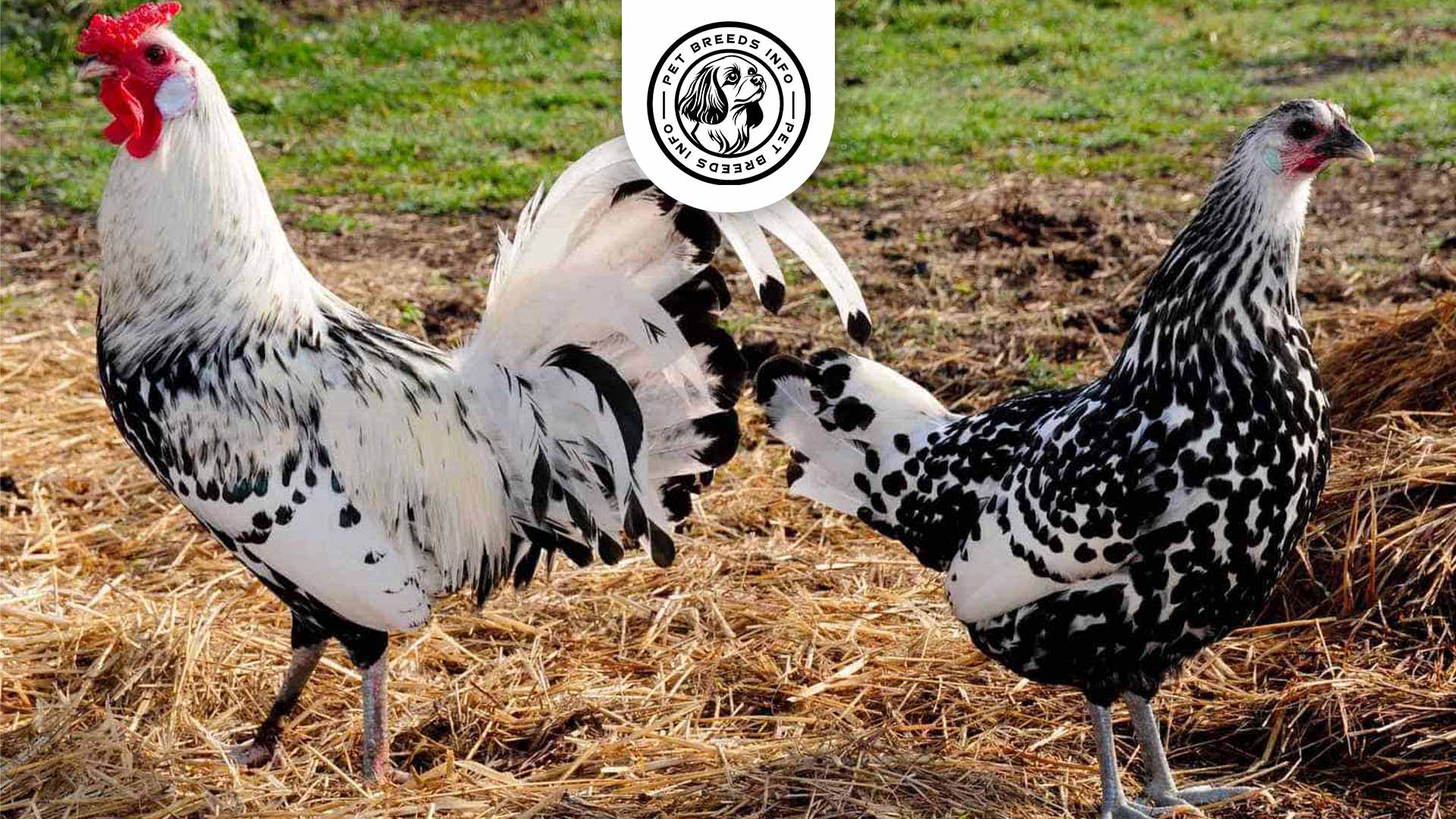
Care and Maintenance Requirements
Hamburg Chickens require plenty of exercise and space. They are best suited for free-range settings or large coops with areas to scratch and forage. Due to their restless nature, confinement in small enclosures can result in stress.
Grooming requirements are minimal. Regular health checks for parasites and ensuring their feathers remain clean is essential. They are quite hardy birds and can adapt to various climates, although they do better in moderate temperatures.
Basic hygiene practices, such as maintaining a clean coop, trimming overgrown nails, and providing fresh water, should be followed to keep them in optimal health.
Diet and Nutrition
The Hamburg Chicken thrives on a balanced diet that includes high-quality poultry feed, grains, and fresh greens. They are excellent foragers and enjoy scratching for insects, which supplement their diet with additional protein.
It is important to avoid processed foods, excessive treats, and anything high in salt or sugar. Crushed oyster shells can be provided to help with eggshell production in laying hens.
Providing constant access to fresh water and ensuring adequate nutrition is key to maintaining overall health and productivity.
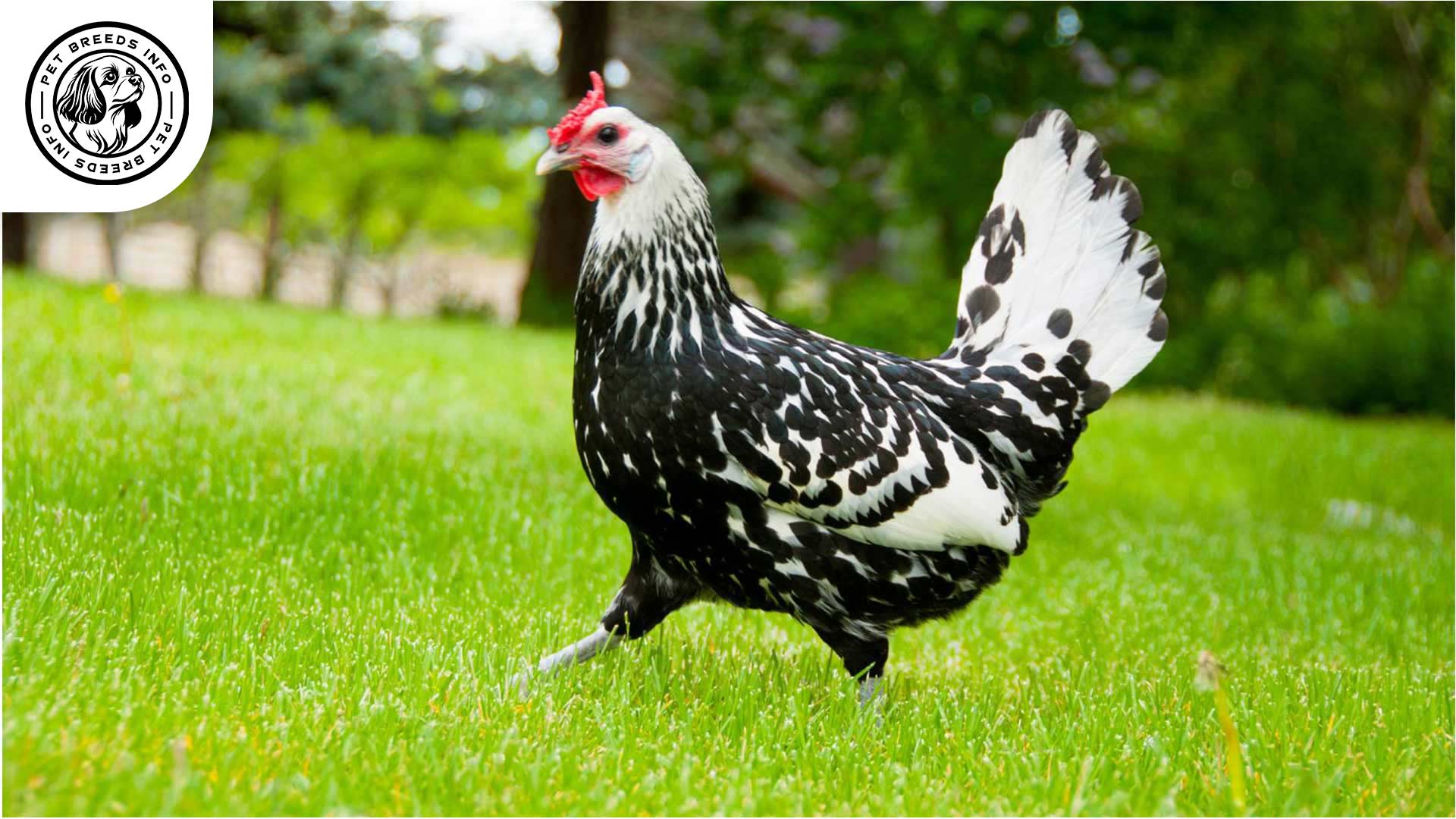
Health and Common Medical Issues
The Hamburg Chicken is generally a hardy breed with few genetic health issues. However, like all poultry breeds, they can be susceptible to common chicken ailments such as mites, lice, respiratory infections, and egg-binding in hens.
Regular health checks, clean coops, and a nutritious diet help prevent many health issues. Their average lifespan ranges from 5 to 8 years, depending on care and living conditions.
Routine vaccinations and deworming may be necessary, especially in environments where they are at risk of parasites or diseases.
Read More: Catalana Chicken
Training and Behavior Management
Training a Hamburg Chicken can be challenging due to its independent and flighty nature. They are not the most docile chickens, making them less ideal for first-time backyard poultry owners who want easily handled birds.
Early socialization and handling can help them become more accustomed to human interaction. Positive reinforcement, such as treats, can also be used to encourage desired behavior.
Since they are excellent foragers, allowing them to engage in natural behaviors can help ensure they remain happy and stress-free.
Interaction with Other Animals and Humans
Hamburg Chickens generally get along well with other chickens, though they may establish dominance due to their active and assertive nature. They are less likely to be bullied by other breeds.
With humans, they tend to be independent and not overly affectionate. However, with proper handling from a young age, they can become more accustomed to people.
This breed is better suited for experienced chicken keepers or individuals with ample space for them to roam. They may not be the best choice for families with small children looking for cuddly chickens.
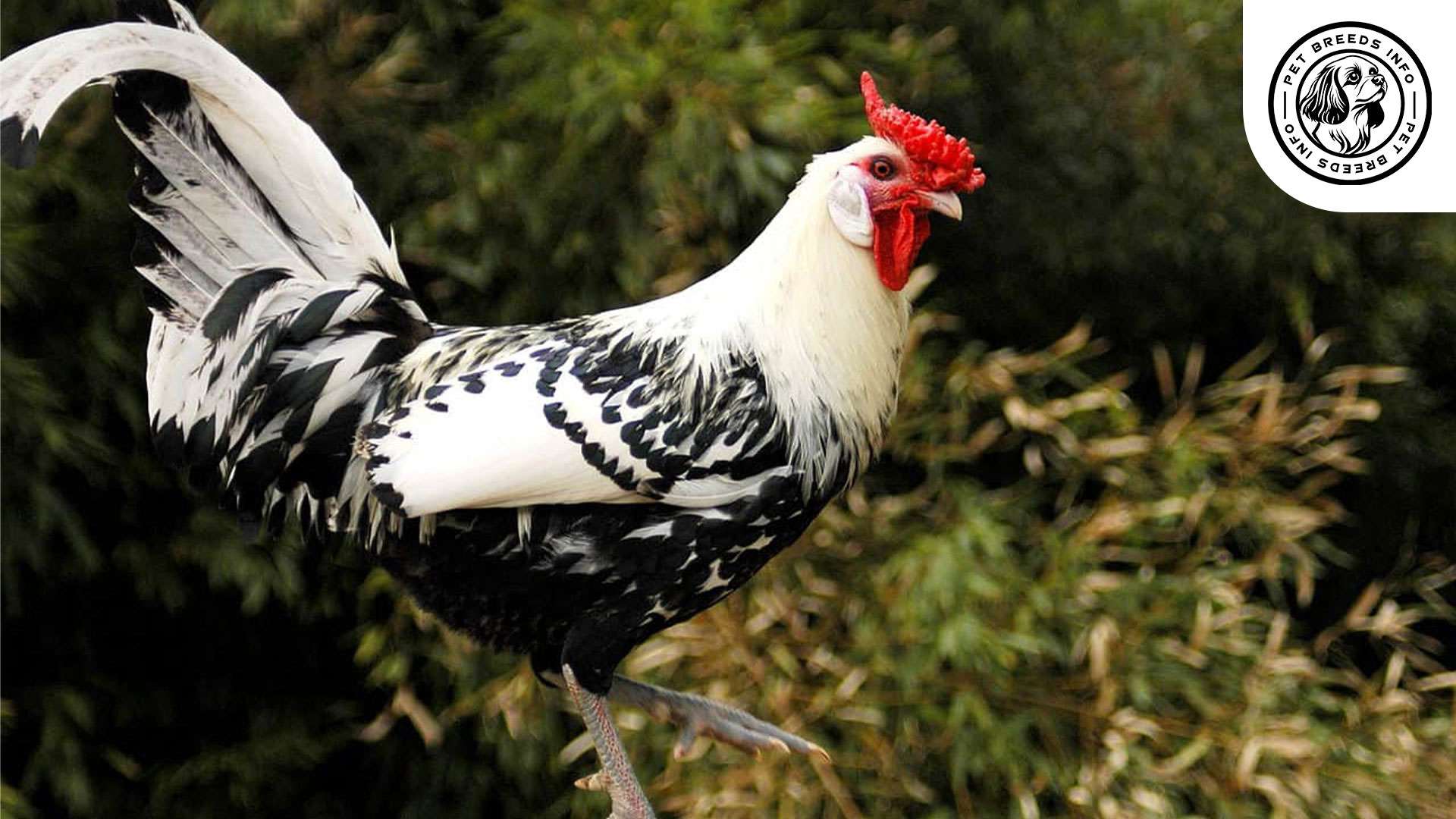
Price and Availability
The price of Hamburg Chickens varies depending on the breeder and color variety. On average, chicks cost between $3 and $6 each, while mature birds may range from $20 to $50.
They are moderately available, with some specialty poultry breeders and hatcheries offering them. It is important to purchase from reputable sources to ensure healthy, well-bred birds.
When selecting a Hamburg Chicken, it is advisable to check for signs of good health, such as clear eyes, clean feathers, and active behavior.
Conclusion and Final Thoughts
The Hamburg Chicken is an excellent choice for those seeking an active, self-sufficient, and prolific egg-laying breed. It is a great fit for large farms and free-range environments but may not be ideal for a backyard flock where interaction with humans is a priority.
With proper care, a nutritious diet, and adequate space, this beautiful bird can be a delightful addition to poultry enthusiasts. However, due to its independent and sometimes flighty personality, it is better suited for experienced chicken keepers rather than beginners.
Potential owners should consider the breed’s high energy levels, need for space, and preference for free-ranging before making a decision. Overall, the Hamburg Chicken remains a fantastic heritage breed known for its elegant appearance and excellent egg production.
Read More: Firefinch
FAQ
What is a Hamburg Chicken known for?
They are known for their excellent egg-laying capabilities, active nature, and elegant appearance with various color patterns and distinctive white earlobes.
Are Hamburg Chickens good for beginners?
Probably not. They are independent and flighty, requiring more space and are better suited for experienced chicken keepers.
Do Hamburg Chickens need a lot of space?
Yes, they are very active and thrive in free-range settings or large coops where they can forage.
What colors do Hamburg Chickens come in?
They come in several color variations, including silver-spangled, gold-spangled, silver-penciled, gold-penciled, and black.
Are Hamburg Chickens friendly with humans?
They tend to be more independent and wary of handling, though some individuals may become friendlier with consistent interaction.
